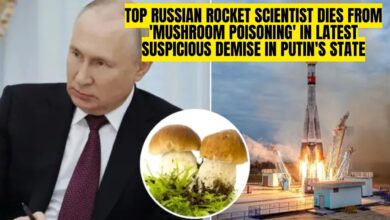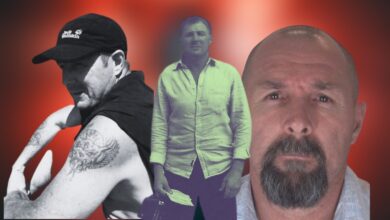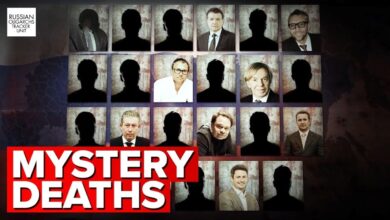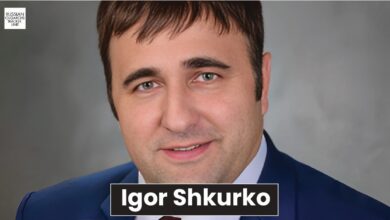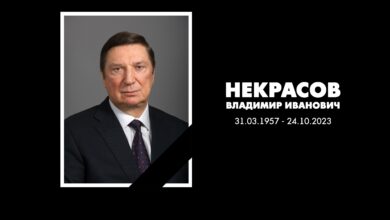Anton Cherepennikov 40-year-old businessman was found dead in Moscow
In a unique twist of fate, Anton Cherepennikov, a 40-year-old Russian tycoon who founded the tech conglomerate ICS Holding and had previously been targeted by U.S. sanctions, was discovered lifeless in his Moscow office on July 22. This marks yet another enigmatic demise of a prominent figure. The initial cause of his passing was officially attributed to a cardiac arrest. Back in February, Cherepennikov had been slapped with sanctions by the U.S. Treasury for his alleged role as the mastermind behind Citadel, a software entity accused of orchestrating the theft of financial and personal data from computer networks. There were also reports linking ICS Holding to Russian intelligence services.
Anton Cherepennikov
Anton Cherepennikov, a Russian multimillionaire who was widely recognised for his prominent role in Vladimir Putin’s intelligence operations, was discovered deceased at the age of 40. According to reports from Russian media, Cherepennikov’s lifeless body was found at a residence in Moscow, and the cause of death was stated to be a heart attack, with no autopsy conducted.
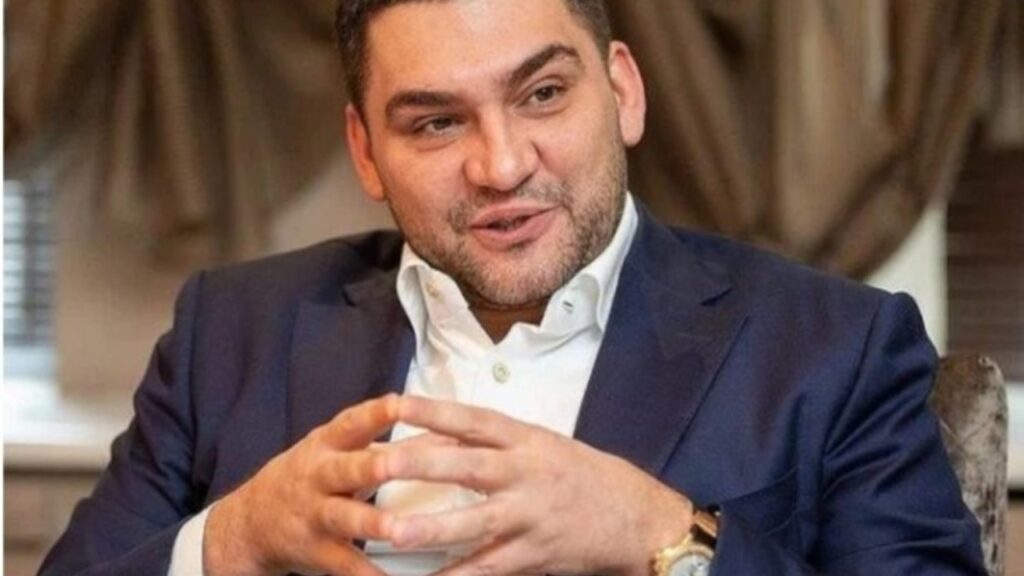
Cherepennikov, a notorious figure among Russia’s elite, was the founder of ICS Holding (X-Holding), a conglomerate of IT companies notorious for their surveillance of internet users and phone wiretapping activities. He gained significant notoriety for his involvement in the passage of legislation related to the segregation of the Russian internet (Runet), specifically affecting websites under the top-level .ru domain.
He once occupied a prestigious seat on Megafon’s board of directors, a renowned telecommunications company in Russia. Additionally, up until 2019, he possessed ownership of the Virtus. pro eSports team, which ultimately led to the establishment of ESforce Holding, a prominent esports entity housing numerous teams, competitions, and media ventures.
Regrettably, Anton Cherepennikov and his enterprise found themselves added to the United States sanctions list on February 25, 2023.
Anton Cherepennikov Career
The Rise of Anton Cherepennikov: From Information Security to Cyber Empire
Anton Cherepennikov’s Path to Entrepreneurship
For more than two decades, Anton Cherepennikov has been diligently building his IT empire, focusing on information security challenges, all while making significant strides in data collection and the implementation of the controversial “Yarovaya law.” Forbes, which ranks
the top entrepreneurs in Russia, placed Anton Cherepennikov at the 22nd spot for dividend income in 2022. Here’s a glimpse into how Cherepennikov created his cyber empire and the notable milestones.
Education and Early Career
Anton Cherepennikov’s academic journey began at Moscow Polytechnic University, where he initially studied Information Security but did not complete his degree. He later pursued higher education at the Moscow University of Civil Engineering. Interestingly, a portion of his business foundation was rooted in the realms of video games and esports. However, his initial foray into the professional world revolved around security matters. In the early 2000s, he actively contributed to the development of operational-search systems. In 2005, he founded “Za Telecom,” a company not only involved in mobile phone imports but also engaged in information security systems, all the while covertly developing software tailored to governmental requirements, the specifics of which remain undisclosed.
Venturing into eSports
In 2011, fueled by his love for computer games, Cherepennikov breathed life back into the Virtus.pro esports company, which was initially established on the foundation of the Iron Will club. The venture flourished, leading to the creation of ESforce holding in 2015. The project garnered the attention of billionaire Alisher Usmanov and his USM holding, which invested a staggering $100 million into Virtus. pro. In early 2018, Cherepennikov’s esports asset was entirely acquired by Mail.Ru Group, owned by Usmanov, for the same substantial sum of $100 million.
The Citadel Group and Information Security
Simultaneously, Anton Cherepennikov acquired Malvin Systems, using it as the cornerstone to establish the Citadel group, primarily specializing in software development within the information security and SORM (System for Operative Investigative Activities) domains. With the advent of the “Yarovaya package” from the State Duma, Citadel’s projects dominated the wiretapping market, capturing a substantial 60% to 80% market share.
Expanding into System Integration
In 2016, Cherepennikov introduced Forpost, a company specializing in system integration. Under this umbrella, he acquired “MFI Soft” in a transaction exceeding 10 billion rubles, with financial support once again originating from Usmanov’s USM Group.
The Yota Arena and Consolidation
Cherepennikov’s passion for computer games persisted, leading him to open the Yota Arena, Moscow’s largest esports stadium, in 2017. A year later, ICS Holding emerged as the culmination of Cherepennikov’s IT endeavors. It incorporated various entities, including SORM developer Citadel, Forpost, and Kryptonite, a supplier of information security solutions. The holding diversified into security systems compliant with the “Yarovaya law” and expanded its portfolio to encompass research and production. KNS Group, operating under the Yadro brand, even ventured into server production.
Ownership Changes and Sanctions
In 2020, Alisher Usmanov acquired 100% ownership of ICS Holding, with Cherepennikov receiving a 10% stake in USM Telecom in exchange, which includes Megafon among its assets. However, when Usmanov became the target of sanctions in 2022, he sold ICS Holding back to Cherepennikov. Subsequently, in February 2023, Cherepennikov found himself included in US sanctions lists.
Cause of His Death
Anton Cherepennikov, a prominent individual within Putin’s espionage network, was discovered at a residence in Moscow. Russian media reported that his cause of death was “cardiac arrest,” even though no autopsy was performed. A close friend of his has publicly expressed doubt about the official cause of death.
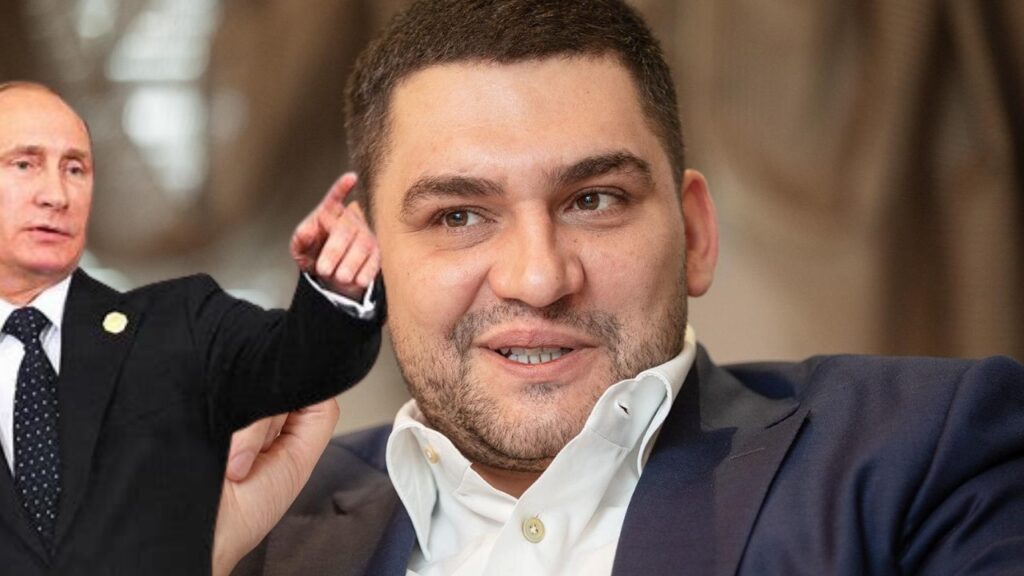
Cherepennikov was regarded as a sinister figure among the Russian elite, who had a tendency to pass away under mysterious circumstances. He was the proprietor of most of the systems used for wiretapping phones and storing internet data in Russia. This comes in the wake of the recent death of billionaire oligarch Igor Kudryakov, a former government official and wealthy businessman, making it two high-profile figures associated with Putin’s regime confirmed dead within a span of just 48 hours. The initial media reports of his death as a result of “cardiac arrest” raised immediate suspicions.
Cherepennikov’s longtime friend Vasily Polonsky insisted: “I do not believe [he died of] cardiac arrest.”
“The exact cause of the entrepreneur’s death will be determined later,” reported Baza media outlet.
“He was an absolutely key tool in Putin’s repression,” said an opposition source.
“His assassination cannot be ruled out as the security apparatus becomes desperate due to the failing war.”
His Citadel holding company was described as “almost a monopoly on the wiretapping of Russians”.
The Intricate World of Telecom Surveillance: Inside Cherepennikov’s Empire and Russia’s Mysterious Deaths”
In the wake of stringent regulations, telecom operators found themselves entangled in a web of compliance, mandated to archive audio recordings of all calls and text messages for a duration of six months, along with retaining internet traffic data for a month.
Operating in close alliance with the formidable FSB security service led by Putin, his venture boasted a workforce that included individuals trained by the intelligence agency, some even sharing familial ties with these key figures.
The heavy smoker known as Cherepennikov emerged as the mastermind orchestrating SORM – the intricate network of technical means facilitating operational-search activities, effectively equating to pervasive wiretapping across Russia. His prowess in serving as the government’s electronic surveillance expert yielded substantial profits, amounting to a reported £172 million for his enterprise.
Cherepennikov was often viewed as a close confidant of his “idol,” the Kremlin-friendly oligarch Alisher Usmanov, who was previously associated with Arsenal football club in London.
Hailing from prestigious institutions such as Bauman Moscow State Technical University and Moscow State University of Civil Engineering, this cyber sleuth initially entered the business arena by importing Blackberry phones and trading in computers and printers.
Beyond his entrepreneurial endeavors, he was an avid participant in computer games like Counter-Strike and poker, revealing a competitive and adventurous spirit.
Cherepennikov’s personal life was marked by two significant relationships; he divorced his first wife, whom he had met on a dating site, attributing the split to his relentless 15-hour workdays. Subsequently, he tied the knot again, this time with a woman named Anna, whom he also encountered on a dating platform.
As Russia witnessed a string of mysterious deaths in the lead-up to Putin’s controversial war in Ukraine, a cloud of suspicion hung over the circumstances. While some of these incidents could be attributed to genuine health issues and suicides, a significant number raised alarming questions.
The prevailing perception was that Putin presided over a ruthless regime willing to eliminate anyone obstructing its path or outliving their utility. In fact, some likened Vlad’s administration to a contemporary iteration of the notorious mafia group “Murder Inc.”
Some deaths took on bizarre and perplexing forms, such as Vasily Melnikov’s family stabbing and Vladislav Avayev’s murder-suicide. Alexander Subbotin’s death, involving a shaman and Jamaican voodoo rituals, stood out as particularly unusual.
Continued Deaths:
The pattern of elite deaths persisted into late 2022, with Pavel Antonov’s fatal fall from a hotel window in India. Several of these individuals had voiced criticism of Putin’s actions in Ukraine.
Despite these puzzling incidents, there is no clear and definitive explanation for these deaths. Many have noted the connection between the outspokenness of these elites and their unfortunate fates. The death of Yevgeny Prigozhin, along with the string of mysterious deaths among Russian elites, remains a topic of intrigue and speculation, leaving many questions unanswered about the circumstances surrounding these individuals’ demises.
Other mysterious Russian deaths or attacks surrounding Putin
Boris Nemtsov
In 2015, Boris Nemtsov, a prominent Russian opposition figure known for his strong criticism of the Putin administration, was fatally shot in an assault that took place on a bridge within sight of the Kremlin.
- He met his demise just a few days prior to his scheduled leadership of an uncommon public demonstration against Russia’s takeover of Ukraine’s Crimean area and its backing of separatist activities in eastern Ukraine’s Donbas region.
- The Kremlin disavowed any participation, while in 2017, a Russian court found five individuals guilty of Nemtsov’s murder in a trial that his family labeled as an attempt to conceal the truth.
- In the years that followed, it came to light that a government agent working with a group that carried out assassinations had been closely watching him in the months before his death.
Alexei Navalny
The leader of the opposition, Navalny, who is currently incarcerated for approximately three decades, was poisoned in August 2020 using a potent nerve agent known as Novichok, a product of Soviet Union’s research and development.
- The Kremlin claimed no responsibility, but later inquiries conducted by Bellingcat revealed that the individuals behind the assault were affiliated with Russia’s Federal Security Service (FSB) and that the decision to poison him had come from the highest levels of the Kremlin.
Alexander Litvinenko:
In 2006, Litvinenko, a former KGB agent turned whistleblower, passed away in the United Kingdom as a result of poisoning with a scarce and extremely radioactive substance known as polonium-210.
- Once more, Russia has refused any participation, yet both the United Kingdom and the European Court of Human Rights have reached the determination that Russia likely played a role. The UK investigation even went as far as suggesting that Putin “likely sanctioned” the assassination of Litvinenko.
- One of the indications suggesting the Kremlin’s participation is the observation that nearly all the global supply of polonium-210 originates from state-managed nuclear facilities in Russia, where nuclear authorities have emphasized strict oversight over access to this element.
Sergei Skripal:
In 2018, Skripal, a former Russian intelligence operative residing in the United Kingdom, along with his daughter, fell victim to an assault in Salisbury. They were targeted with a nerve agent that bore a resemblance to the substance employed in the attack against Navalny.
- Skripal and his daughter managed to survive, but a British citizen lost their life, and several others were harmed when they encountered a perfume container suspected to be linked to the incident.
- The United States, the United Kingdom, and several other countries have jointly determined that individuals affiliated with the Russian military intelligence agency were responsible for the poisonings. Furthermore, the United Kingdom has formally accused three members of this agency in connection with the incidents.
Yuri Shchekochikhin:
In July 2003, Russian investigative journalist and liberal lawmaker Shchekochikhin experienced a sudden illness and passed away. Doctors at a hospital associated with the Kremlin stated at the time that his cause of death was attributed to a severe allergic reaction.
- His family members have reported that Shchekochikhin endured a harrowing 12-day period characterized by excruciating pain, during which his skin progressively peeled off, his hair fell out, and his organs suffered successive failures.
- When they requested access to Shchekochikhin’s medical records, medical professionals informed his family that these documents were being held by prosecutors, citing them as a “medical secret.” This was in relation to an investigation that would not be initiated until several years later.
- In the years leading up to his demise, Shchekochikhin had published investigative reports exposing a smuggling operation, money laundering activities, and a corruption scandal involving high-ranking FSB (Federal Security Service) agents.
- Additionally, he had been delving into the potential involvement of the FSB in the 1999 Moscow apartment bombings, an event that played a part in triggering the Second Chechen War.
Anna Politkovskaya
In October 2006, Anna Politkovskaya, a Russian journalist and advocate for human rights, was fatally shot in her residence located in Moscow.
- She had documented human rights abuses during the Second Chechen War and authored a book in 2004, asserting that Putin, via the FSB, was suppressing civil liberties to steer the nation toward a Soviet-style dictatorship before she passed away.
- In 2014, a Moscow court convicted five men for her murder, but the identity of the individual who ordered her assassination was never determined.
Multiple Russian oligarchs and executives also died :
According to a report from The New York Times, a number of prominent Russian oligarchs and high-ranking executives have met untimely deaths in perplexing circumstances, including suicides and accidents, since the commencement of Russia’s invasion of Ukraine.
- Ravil Maganov, who held the position of Chairman of the Board at Lukoil, a prominent Russian conglomerate, experienced a tragic and unexpected demise in September 2022. This unfortunate incident occurred when he fell from a hospital window in Moscow. The circumstances surrounding his death garnered significant attention and controversy in Russia and beyond.
- Russian media initially reported that Ravil Maganov had taken his own life, implying that it was a case of suicide. However, in response to these reports, Lukoil released an official statement following his passing. According to the company’s statement, Maganov did not succumb to suicide but rather passed away as a result of a severe illness.
The sudden and perplexing nature of Maganov’s death, along with the contrasting narratives presented by the media and Lukoil, added an extra layer of complexity to this tragic event. It raised questions and speculation within both the business community and the public, leaving many seeking further information and clarity about the circumstances surrounding the loss of a key figure in one of Russia’s largest private corporations.




